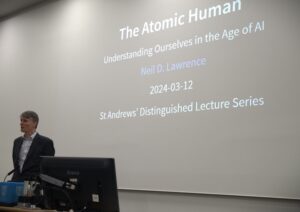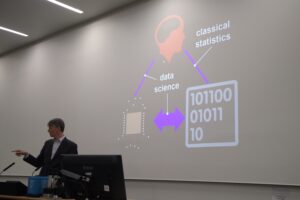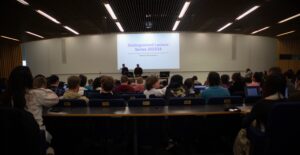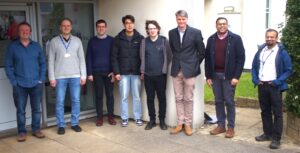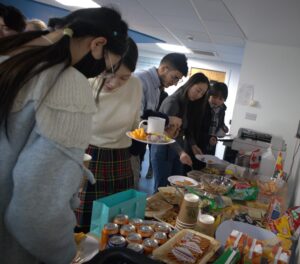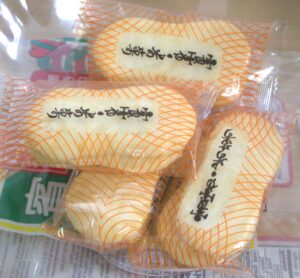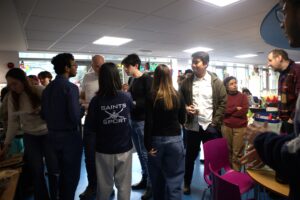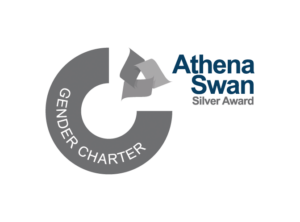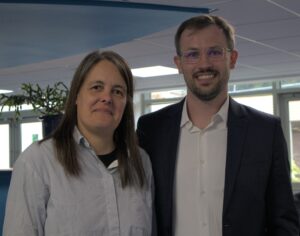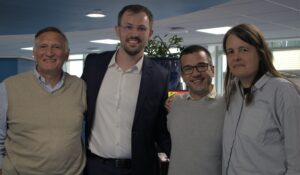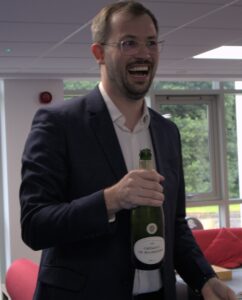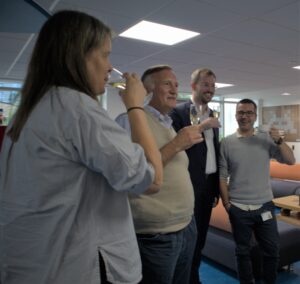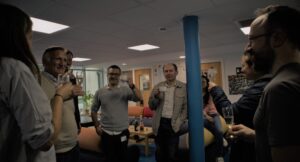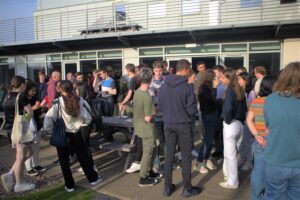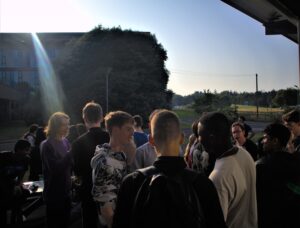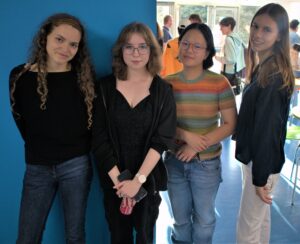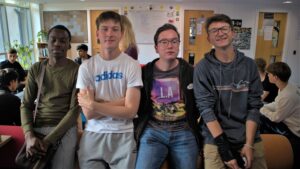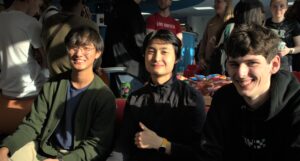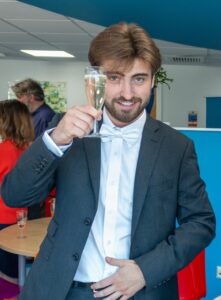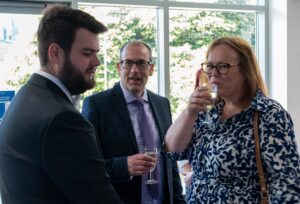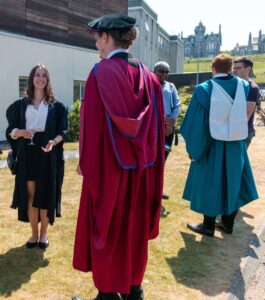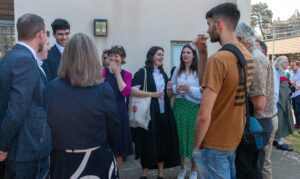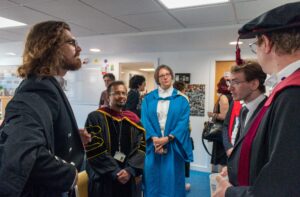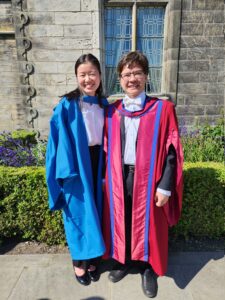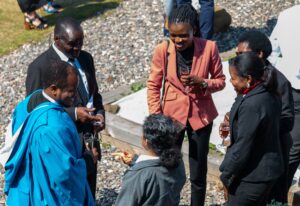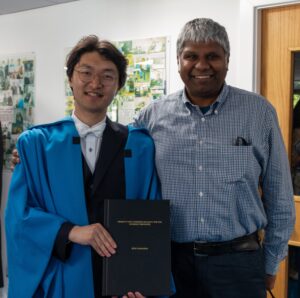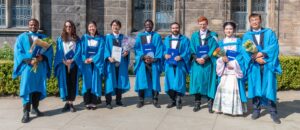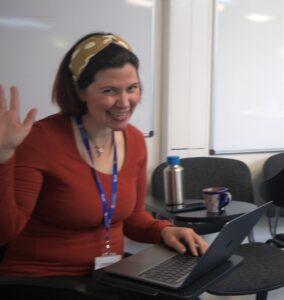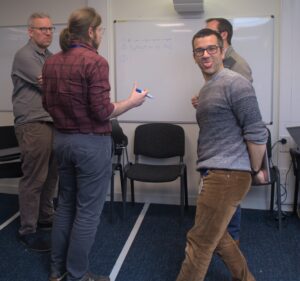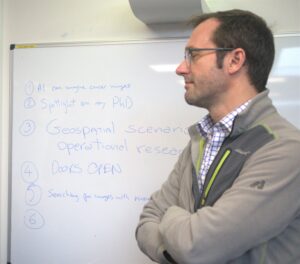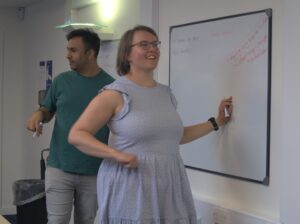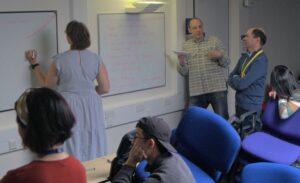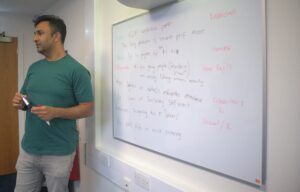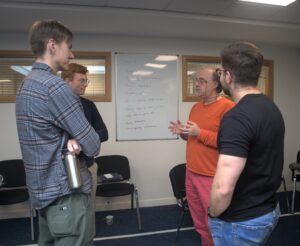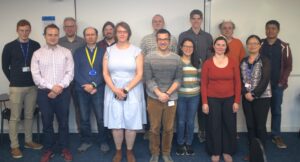- Tuesday 12 March
- Booth Lecture Theatre, Medical Sciences Building.
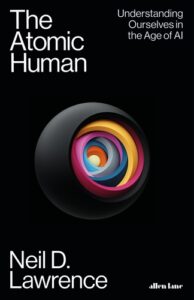
We look forward to welcoming Prof Neil Lawrence, Cambridge who will talk about ‘The Atomic Human: Understanding Ourselves in the Age of AI’.
A vital perspective is missing from the discussions we are having about Artificial Intelligence: what does it mean for our identity?
Our fascination with AI stems from the perceived uniqueness of human intelligence. We believe it is what differentiates us. Fears of AI not only concern how it invades our digital lives but also the implied threat of an intelligence that displaces us from our position at the centre of the world.
Atomism, proposed by Democritus, suggested it was impossible to continue dividing matter down into ever smaller components: eventually, we reach a point where a cut cannot be made (the Greek for uncuttable is ‘atom’). In the same way, by slicing away at the facets of human intelligence that can be replaced by machines, AI uncovers what is left: an indivisible core that is the essence of humanity.
By contrasting our own (evolved, locked-in, embodied) intelligence with the capabilities of machine intelligence through history, The
Atomic Human reveals the technical origins, capabilities, and limitations of AI systems, and how they should be wielded. Not just
by the experts, but by ordinary people. Either AI is a tool for us, or we become a tool of AI. Understanding this will enable us to choose
the future we want.
This talk is based on Neil’s forthcoming book to be published with Allen Lane in June 2024. Machine learning solutions, in particular
those based on deep learning methods, form an underpinning of the the current revolution in “artificial intelligence” that has dominated
popular press headlines and is having a significant influence on the wider tech agenda.
In this talk, I will give an overview of where we are now with machine learning solutions, and what challenges we face both in the
near and far future. These include practical application of existing algorithms in the face of the need to explain decision-making,
mechanisms for improving the quality and availability of data, dealing with large unstructured datasets.


